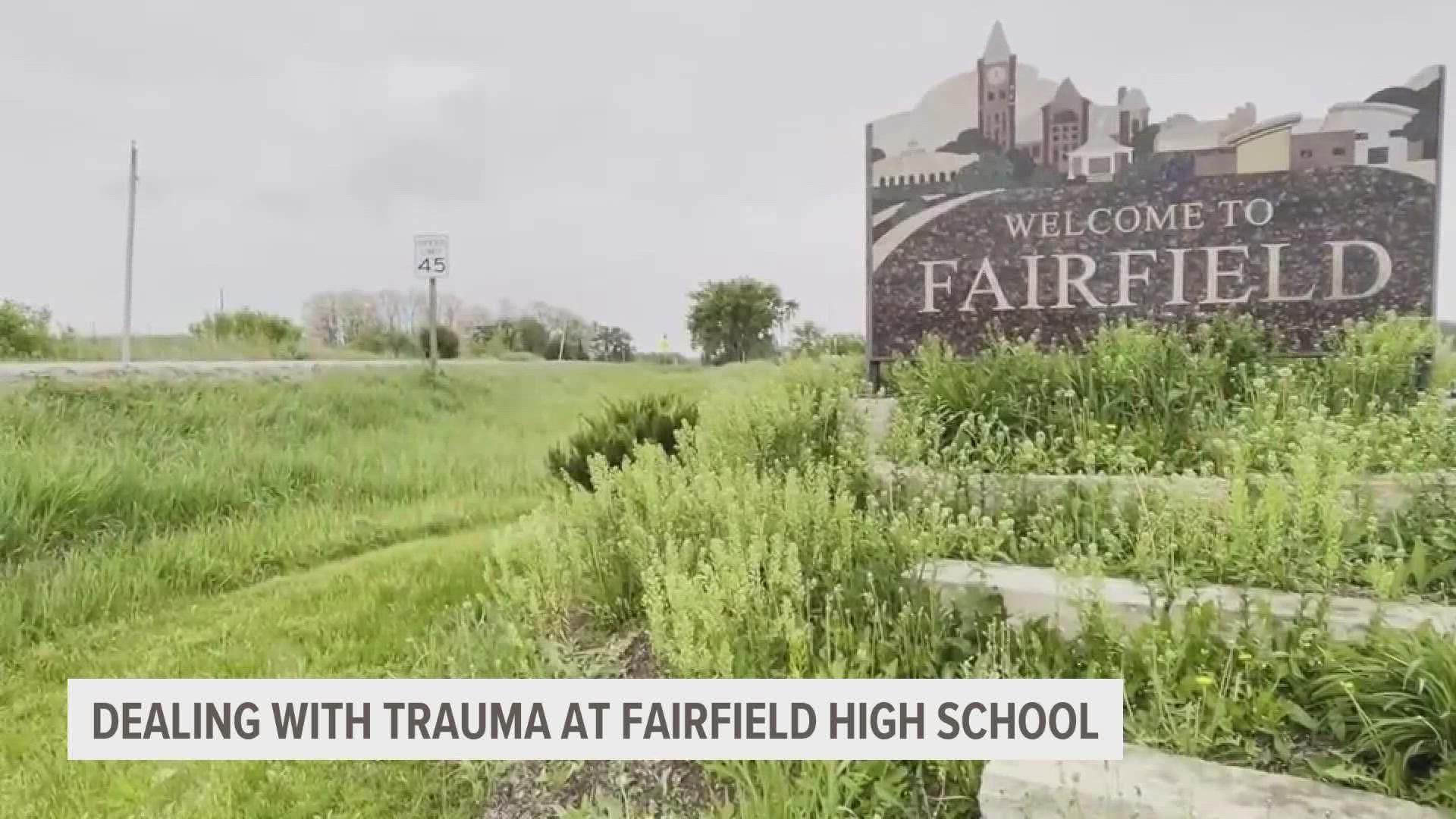FAIRFIELD, Iowa — The community of Fairfield was stunned by the loss of Nohema Graber in November, the woman allegedly murdered by two students. And the student body was already dealing with a loss when it learned of Graber's death.
"Our student body and our staff are also processing a suicide that happened in the fall," said Fairfield Community School District Superintendent Laurie Knoll. "So really, it was almost a two-week turnaround from the suicide to the murder."
For the Trojans, processing these traumas came on top of stressors related to navigating the pandemic, which is why the Iowa Center for School Mental Health reached out to help. The center is a partnership between the University of Iowa's Department of Education and the Iowa Department of Education.
"They set up meetings with our students," said Knoll. "And they had class meetings, and they did such a phenomenal job."
Alissa Doobay, the director of Clinical Services for the Iowa Center for School Mental Health, said her team could see right away why their services were necessary.
"A lot of people were feeling pretty isolated and alone in their experiences, or maybe questioning, you know, is it normal that I'm feeling this way."
While dealing with the murder and suicide, students and staff had the chance to confront other issues they may not have realized they were struggling with.
"I think the trauma and the stress of those particular incidents really brought to the forefront the overall challenges individuals were facing," Doobay said. "Or maybe reminded them of past difficult times in their lives that they maybe had never talked with anyone about and had not received counseling, had not participated in any kind of mental health support. And so we were able to process all of that with them as well."
The center is funded through the state and with federal COVID-19 relief funds. Allison Bruhn, the executive director for the Iowa Center for School Mental Health, said this makes their services more accessible.
"So we have been doing this free of charge," she said. "That's part of the mission to improve social, emotional, behavioral, psychological outcomes for K-12 students, and for educators."
The district said the services reached all its high school students.
"To be able to touch 500 students is just such an impact," Knoll said.
"It's a hard job, it's a heavy job," Bruhn added. "But to see the impact that it's making and that it's making a difference, and that, you know, kids and educators feel supported. That's the most important thing."

